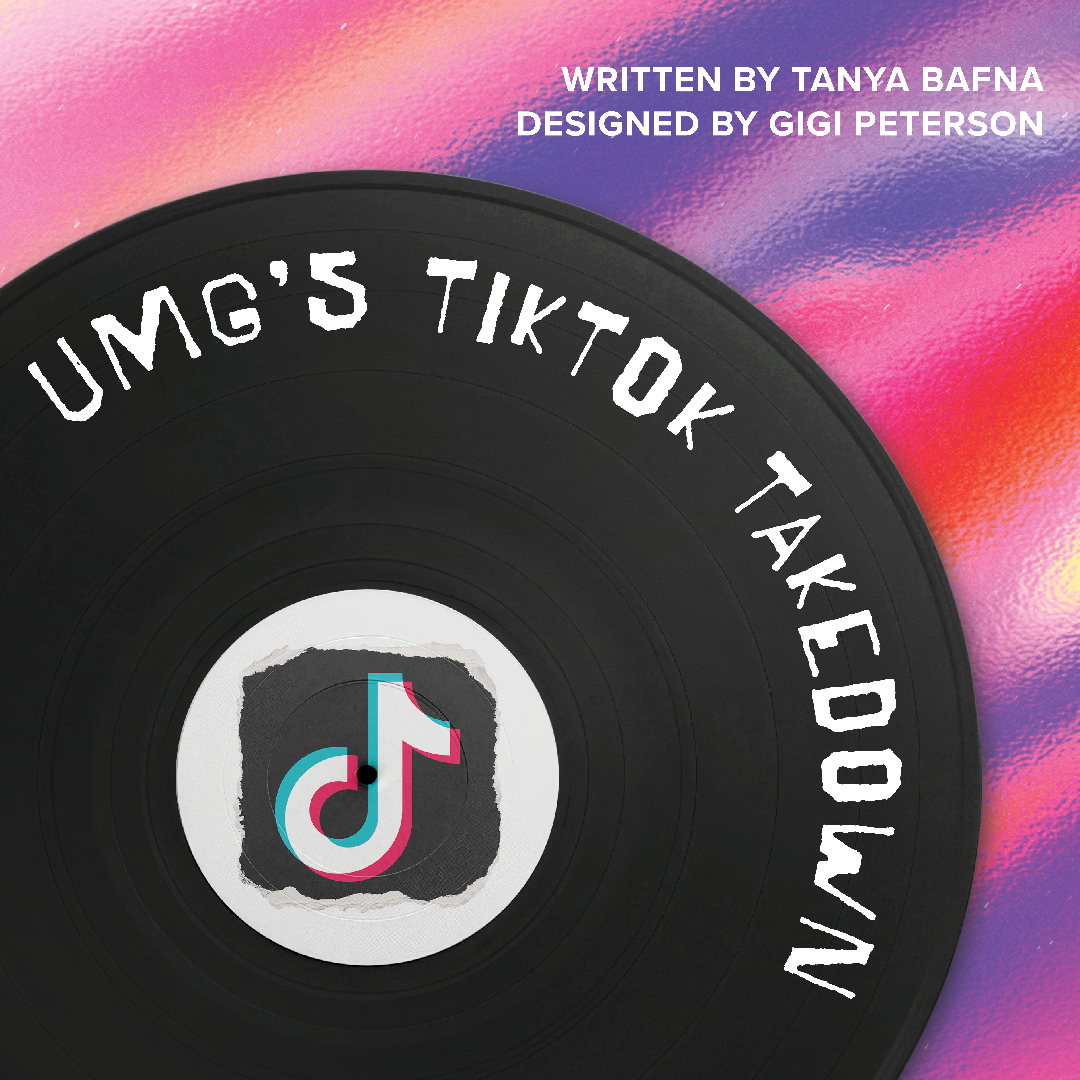
Videos on TikTok lost audio backgrounds Thursday morning (February 1st) as negotiations over licensing agreements deteriorated between the platform and Universal Music Group. Universal Music Group, or UMG, is a major company known for distributing music from artists such as Taylor Swift, Drake, U2 and Ariana Grande.
UMG explained their decision, citing TikTok’s offer of a significantly lower payment compared to other social platforms. TikTok countered, accusing UMG of prioritizing their financial gain over the well-being of their artists and songwriters. Some artists and songwriters, like Jack Antonoff, have voiced their opinion on the matter. Antonoff, who won Producer of the Year at the Grammys Feb. 4, expressed frustration, saying the situation is backwards and they should have been informed about it.
In an episode of “Today, Explained” released in February, digital activist Cory Doctorow explained that companies like TikTok don’t feel obligated to consider the inconvenience they cause their users. Doctorow invented the term “enshittification,” describing how digital platforms initially attract users with unique experiences, only to later worsen those experiences to benefit their business partners.
This all occurred because UMG and TikTok couldn’t agree on a new licensing deal after the previous one expired on January 31st. UMG is pressing TikTok on three main issues: fair compensation for artists and songwriters, safeguarding artists from negative impacts of AI music creation and protecting users from hate speech and harassment. UMG accused TikTok of trying to force them into accepting a deal that undervalued their music and didn’t reflect TikTok’s growth. TikTok responded, stating that they’ve successfully negotiated agreements with other labels and publishers, implying that UMG’s actions are selfish and not in the best interest of artists, songwriters and fans.
Several artists have expressed their views on the matter, and it seems to be a conflicting situation. The Republic/UMG artist Conan Gray joked about his music being removed from TikTok, suggesting his career was over. However, behind the humor lies the genuine concern shared by many artists about losing a vital marketing tool. Gray’s quip reflects the anxiety artists feel when their music is no longer easily accessible to potential fans.
Verskotzi, an alt-pop artist with a hybrid distribution deal under Preach Records, a label distributed by UMG-owned Virgin, expressed the emotional toll of having his music removed from TikTok. He conveyed the frustration and discouragement of seeing his hard work essentially silenced due to negotiations between UMG and TikTok, which led to significant mental health struggles for him.
Independent hip hop artist Hoodie Allen, who distributes his music via Tunecore and has amassed millions of streams on Spotify, voiced his frustration at having his music removed from TikTok. He highlighted the distress caused by the sudden removal of his songs from the platform, especially since it impacted his established presence and connection with fans. Allen also raised concerns about the broader implications of music being taken down due to proxy battles between companies like UMG and TikTok, questioning the fairness of the situation.
TikTok has become a hotspot for making songs popular. It’s a lively social platform loved by young people. The ability for a song to quickly spread and become viral on TikTok is crucial for the music industry today. Artists appreciate TikTok because it’s where their audience is, even though they might not be aware of all the legal and financial disagreements behind the scenes.
Ben Sisario, an American academic, author, and journalist who covers the music industry for the New York Times, explained in an interview with PBS how important it is for TikTok to have UMG’s music on their platform. UMG is a huge record company with many successful artists who perform well on TikTok. Users of the app expect to be able to use any song they want in their videos, and that’s one of the reasons they use TikTok. Unlike Spotify, which is mainly for listening to music, TikTok is about creating content, often using music in the background or for dancing and lip-syncing. While there are other videos to create and watch TikTok, not having access to UMG’s music could eventually frustrate users if the issue isn’t resolved.